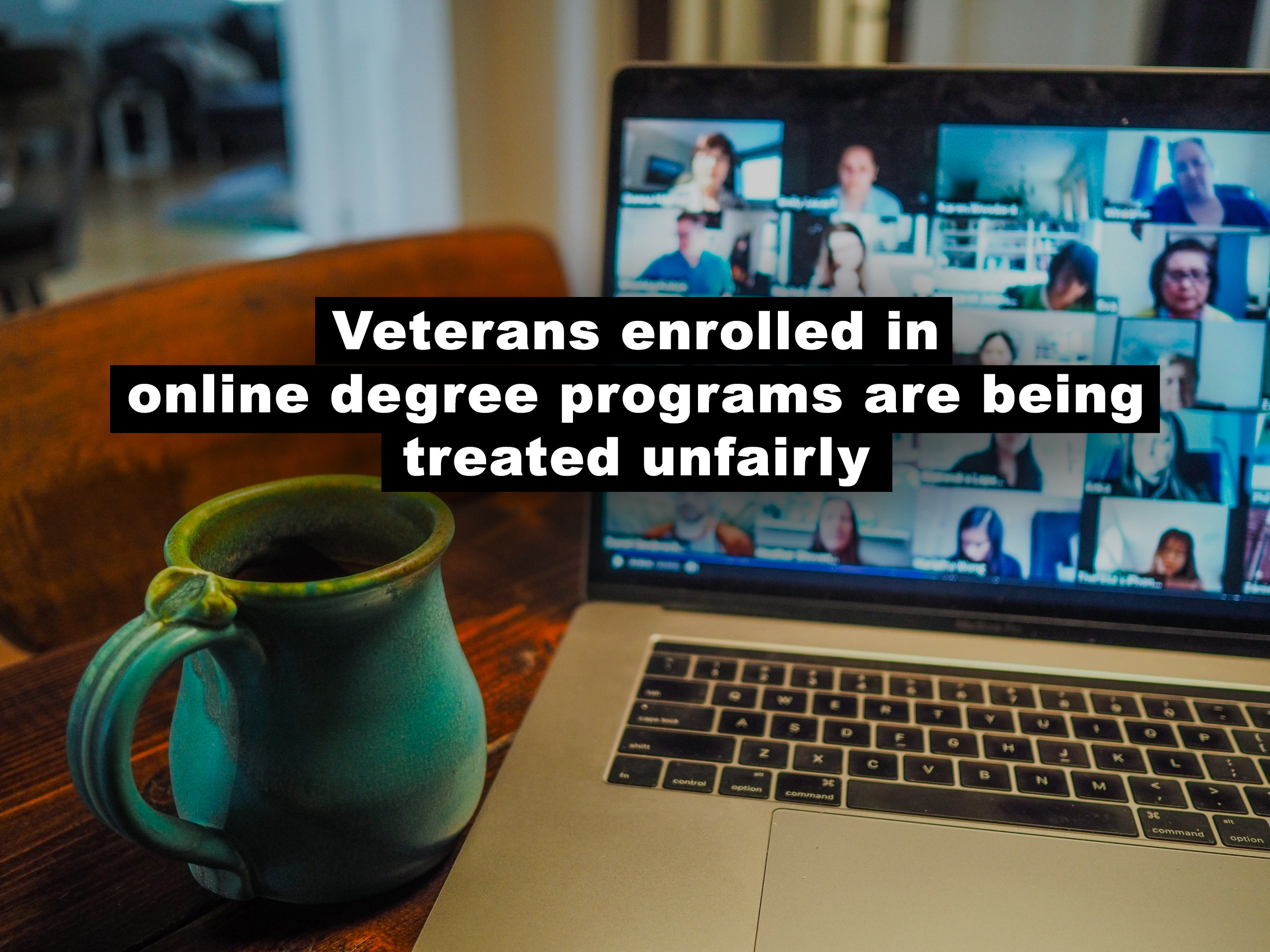
Veterans enrolled in distance education, who equally earned their benefits serving our nation, do not receive equal treatment compared to those taking at least some coursework in-person. What likely began as an effort to steer student veterans away from the new and unfamiliar model of online education is now negatively impacting them. We supported an Urban Institute study to uncover the origins of the policy, how it is impacting veterans today, and what it would take to level the playing field. The report confirms that solutions to correct this inequity are more than achievable. We call on policymakers to consider the facts and take corrective action.
Policy Origin
Unfortunately, the rationale for halving the Monthly Housing Allowance (MHA) for online students is not well documented by lawmakers or Veterans Affairs (VA). The policy took effect in 2011, as online degrees were beginning to boom, but before significant outcomes data were available to measure program quality. It was believed that fully online degrees were inferior, so offering less benefit for online programs may have been an attempt to discourage enrollment in such programs. However, the higher education landscape has changed drastically since 2009, especially since the COVID-19 pandemic forced nearly all institutions to offer some amount of online learning. No longer is online education only offered through a handful of private institutions, but nearly every public and private institution in America now offers fully-online degrees.
This shift to online has proven to be advantageous for currently serving and veteran students. They can continue their educational pursuits during deployments, ever-changing duty stations, and the demands of civilian careers. In fact, in a 2015-16 study, we see 15.1% of GI Bill recipients choose fully online education as opposed to just 8.9% of all other students. Those figures are likely much higher post-pandemic. GI Bill students are not typical 18-14 year-old students attending college right out of high school. They are more likely to have full-time careers and families they support. Online programs have given them educational opportunities they would not have otherwise been able to pursue. Penalizing online attendance, when it is the only modality that makes higher education possible for some, is counter-productive.
Are Online Programs Inferior?
More than a decade has passed since the policy was enacted, and we now have robust and rich data on student outcomes for online programs. Interestingly, these data demonstrate that predominantly online programs produce similar student outcomes to those that offer mostly in-person courses. Student outcomes like post-enrollment earnings, loan payback rates, and career attainment differ institution by institution regardless of modality. According to the study:
“Typical earnings among former students at Excelsior University, an exclusively online institution popular among GI Bill recipients, are among the highest for the 50 institutions we examined ($75,846). But another exclusively online institution popular among GI Bill recipients, the University of Arizona Global Campus, shows some of the lowest earnings among the 50 institutions ($37,270). Students from Tidewater Community College, a predominately in-person institution in Virginia, typically earn $35,053 ten years after enrolling, placing it near the bottom of the list, while students at Texas A&M University in College Station, another predominately in-person university, are among the highest in the 50 institutions we examined.”
Recent outcomes data confirm online programs are not inferior to traditional face-to-face offerings across the board. Continuing to penalize student veterans who choose online programs, often out of necessity, can no longer be rationalized as protection against inferior educations.
The Policy Hurts the Most Vulnerable Veterans
One might assume that housing costs are less for online students as opposed to those who attend at least some of their coursework in traditional classrooms. After all, they are not living on college campuses. Urban Institute examined housing costs among both populations to determine if halving the MHA is warranted. The data suggest that the housing costs of GI Bill recipients who attend fully online programs is similar, and even slightly higher than those who attend in person. These veterans are receiving half the benefit to cover slightly higher living expenses than their traditional classroom peers. Statistically lower income and family contribution levels for veteran students attending fully online programs worsen the problem. Adding insult to injury, many veterans who choose to enroll fully online have injuries and disabilities that preclude them from attending class in-person. Reducing MHA penalizes disabled veterans whose best or only options for pursuing education are online offerings.

Solutions are Possible
We find ourselves in turbulent economic times. MHA Parity for online student veterans may seem out of reach. Urban Institute’s study found that leveling the playing field is more than attainable.
“Our analysis suggests that Congress should consider allowing a full MHA for students attending programs exclusively online and that the MHA for these students be based on where they reside rather than a national average. We estimate that these changes could result in a modest increase in the cost of the GI Bill program of about $100 million a year, or a 1 percent increase in the approximately $10 billion annual cost of the entire GI Bill program.”
Online education opportunities continue to grow exponentially. Every industry has experienced this digital shift. Higher Education is no different. This study proves that the proliferation of distance education is not a negative. Not only are outcomes on par with primarily in-person institutions, but online institutions provide educational victories for veterans who cannot attend class face-to-face. Our hope is that legislators will dig into the research and form educated opinions that will lead to MHA parity for all student veterans.




